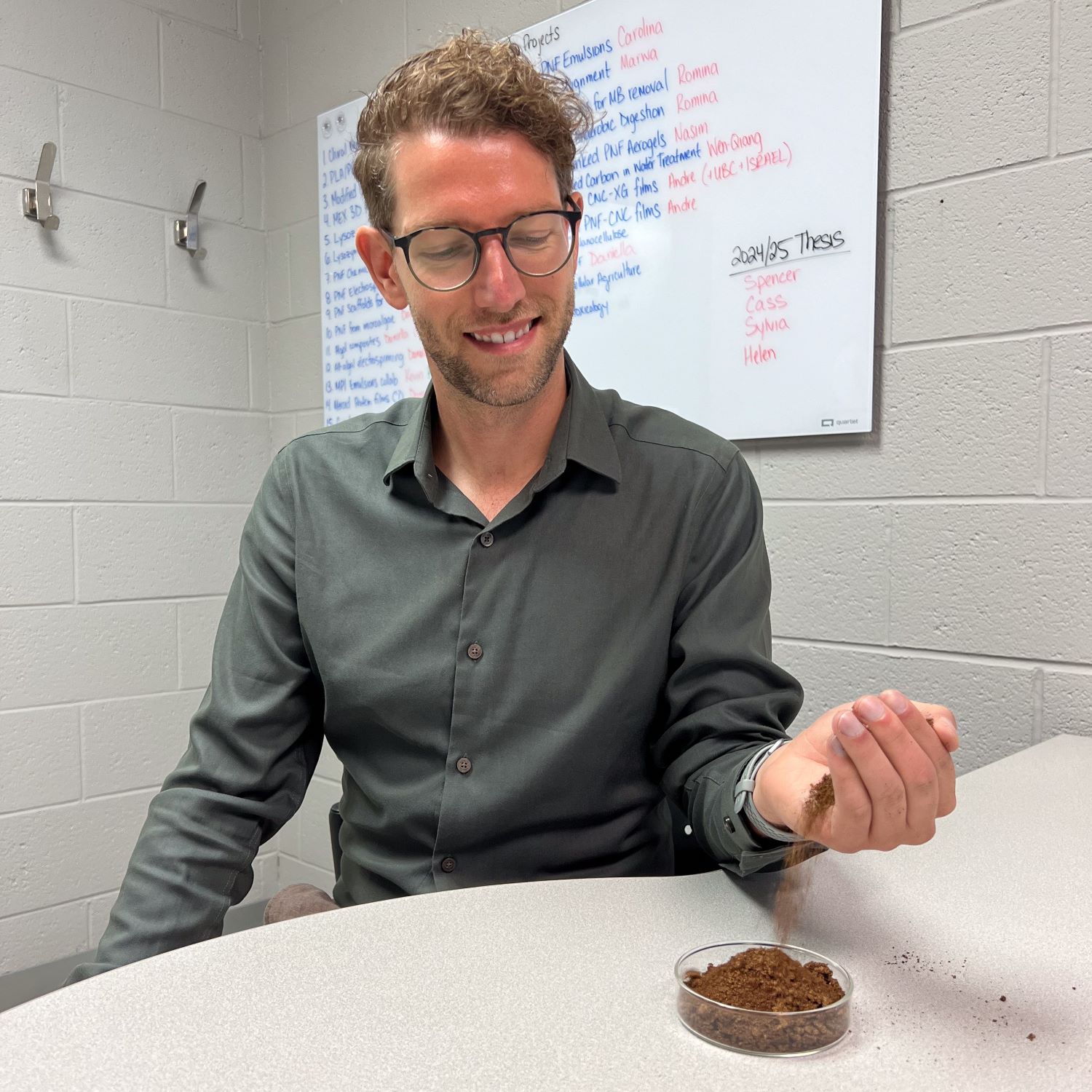
Kevin De France has been awarded nearly $3.2 million in funding for a research project that promises to develop sustainable material solutions and reduce greenhouse gas emissions in Canadian agricultural practises.
De France, an Assistant Professor in the Department of Chemical Engineering, will lead a four-year project in the use of canola meal as a material feedstock.
“As of 2023, canola is the number one source of revenue for farmers in Canada,” he says. “However, this revenue is overwhelmingly driven by canola oil. But canola oil is only half of the picture. Literally, if you weighed a canola seed, about half of that seed can be turned into oil. The rest is a solid substance called canola meal and, as an industry, we don’t really use canola meal at all. This project will change that.”
The funding has been awarded by the NSERC-SSHRC Sustainable Agriculture Research Initiative (SARI), a joint initiative between the Natural Sciences and Engineering Research Council of Canada (NSERC) and the Social Sciences and Humanities Research Council (SSHRC), in collaboration with Agriculture and Agri-Food Canada (AAFC). See the NSERC news release.
De France is leading a collaborative team of researchers spanning four universities, including Queen’s, the University of Guelph, McMaster University, and the University of Manitoba.
Co-applicants include Marianna Kontopoulou and Cao Thang Dinh from the Department of Chemical Engineering, as well as Warren Mabee (Queen’s Policy Studies), Michael Thompson (McMaster University), Todd Hoare (McMaster University), Song Liu (University of Manitoba), Evan Fraser (University of Guelph), Nandika Bandara (University of Manitoba), and Maria Corradini (University of Guelph).
The Canadian canola industry generates $30 billion per year, placing canola firmly as the highest earning crop commodity in Canada. Global demand for canola oil is expected to surpass 26 million tons by 2025; therefore, the importance of a sustainable and profitable canola industry in Canada is critical.
As a consequence of increased canola production to meet rising demand, in the next few years canola meal — a low value byproduct of oil extraction — will be generated at an unprecedented scale. Although canola meal can be used as an additive in livestock feed, it is overwhelmingly discarded as waste which leads to greenhouse gas (GHG) emissions.
According to Statistics Canada, in the 2021/22 crop year the total supply of canola meal in Canada surpassed 5 million tons, with domestic use — including livestock feed — responsible for just over 12% of this supply. As a result, expanding the uses of canola meal to limit waste and GHG emissions will be necessary for Canada's growing canola industry to sustainably manage this accumulating biomass.
The team is partnering with Agriculture and Agri-Food Canada, Canola Council of Canada, Plantee Bioplastics Inc., New Harvest Canada, and Vireo Advisors Canada to solve this issue via a transformative biorefinery approach, centered on extraction, fractionation, and utilization of canola meal for broad applications in the Canadian agricultural sector.
These include replacing petroleum-derived plastic films in agriculture, improving plant and livestock health using delivery vehicles for active ingredients, developing biodegradable scaffolds for cellular agriculture, and designing biobased electrodes for carbon capture and conversion.
Each of these technologies will further improve sustainability by reducing GHG emissions, increasing farm productivity, reducing the amount of farm inputs by stabilizing active ingredients, and by reducing negative environmental impacts such as microplastic pollution.
“This project is quite impactful from a sustainability perspective in the sense that canola meal is currently largely discarded as waste which creates GHG emissions,” says De France. “Here, we are finding a variety of uses for canola meal, turning this feedstock into high-value products that themselves reduce GHG emissions. It’s quite a one-two punch! It’s kind of a two-birds, one-stone situation.”
This initiative will train over 40 students, including undergraduate, graduate, and postdoctoral researchers, directly bolstering the Canadian agricultural and cleantech sectors.